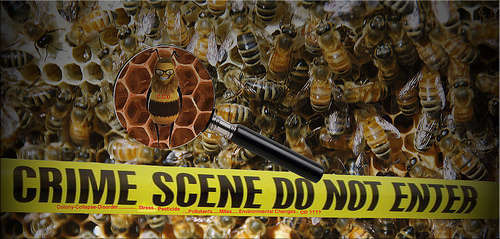More and more, Memphis is becoming a city with a green ethos.
It’s encouraging that people and organizations from all parts of the community have joined in this movement and remarkable progress has been made in only six years. Unfortunately, an organization that should be leading this movement – Agricenter International – is once again headed in the opposite direction.
Looking back, it’s hard to overlook the triggering role that Shelby Farms Park – or more precisely, supporters of the park – played in all of the green progress. If there was a triggering event, it was the night at Memphis Botanic Garden in February, 2007, called Greening Greater Memphis.
On that evening, more than 1,000 people serviced notice that Memphis had an untapped and growing interest in a green infrastructure. After hearing from the city and county mayors, local urban authority Carol Coletta, and nationally known park planner Alex Garvin, participants signed a declaration demanding greater public attention to the creation of parks, greenways, waterways, bike paths, and more.
At Cross Purposes
As is usually the case with any investment in Memphis, everyone genuflected to the importance of these green assets in attracting and retaining young professionals. Memphis and Shelby County have made impressive progress in the intervening six years, but it’s no longer enough to have bike paths and greenlines to attract this coveted group.
These days, they are looking to cities with a green ethos, cities focused on energy conservation, car and bike sharing, sustainable buildings, rain-water harvesting, low-flow plumbing fixtures, electric car charging stations, recycling programs, material selection, and more. Much of the local ambition to create this green ethos is captured in the Sustainable Shelby plan, the first comprehensive sustainability plan for our region, which in turn helped frame up the $2.7 million HUD-funded Greenprinting and Sustainability Plan that is now under way.
One of the most striking fronts in the battle for a green Memphis has been with the local food movement, farmers’ markets, organic food, and community-supported agriculture. It would seem logical that 1,000 acres of public land would be a positive contributor in these areas, but Agricenter International has largely been irrelevant as Memphis and Shelby County have explored and magnified its new green ethos.
More to the point, at a time when our community is looking to rebrand itself nationally, pointing to ways that our agricultural heritage is contributing to this new direction would be nationally significant for Memphis and Shelby County; however, Agricenter continues to take pride in its relationships with companies known for their chemicals and for genetically modified food.
It would be such a worthwhile use of the 1,000 acres that county government granted Agricenter International if we could visit a working farm there, even better if it were a model of Community-Supported Agriculture and if it were accompanied by a restaurant whose chef offered up meals from plants grown on the farm.
Take an Aspirin
All in all, Agricenter International has had a valuable opportunity to be a leader of the local green agricultural movement, but instead, it’s been business as usual, as shown by the latest excited announcement that Bayer CropScience will be investing $17 million Agricenter’s publicly-owned land to build a new greenhouse, which will include 40,000 square feet of growing space as well as a spacious headhouse and open office space.
Shelby County Mayor Mark Luttrell hailed it as a major boost to the local economy; however, there was nothing said about whether it is the best use of public land. After all, if public pension plans are now questioning whether their investments in companies contribute to the public good, perhaps, it’s time to do the same with some of the most valuable, visible land in this community.
In a press release, John Charles Wilson, President of Agricenter International, joined Mayor Luttrell in commending the expansion by Bayer CropScience and Helena Chemical Company. He said they “will add much to our overall mission at Agricenter International. The research conducted by these companies could set new standards for the agriculture industry.”
We’re unsure what “new standards” he’s referring to, considering the fact that the chemical companies at Agricenter have figured in a number of controversies that have called into question the standards they’re pursuing.
Stung
The news release was interesting, not only for its pro forma avoidance of the controversies surrounding Agricenter tenants, but we’ve never seen a news release from local government that had this kind of disclaimer at its end.
Called “Forward-Looking Statements,” it said: “This release may contain forward-looking statements based on current assumptions and forecasts made by Bayer Group or subgroup management. Various known and unknown risks, uncertainties and other factors could lead to material differences between the actual future results, financial situation, development or performance of the company and the estimates given here. These factors include those discussed in Bayer’s public reports which are available on the Bayer website at www.bayer.com. The company assumes no liability whatsoever to update these forward-looking statements or to conform them to future events or developments.”
Whew.
We’re assuming that one of those “risks” doesn’t involve the death of bees in what has been called Colony Collapse Disorder. It has been estimated that a majority of the bee population has simply vanished. There have been several theories about the cause, but it has now been proven that two pesticides called clothianidin and imidacloprid are significant contributors. Both are manufactured by Bayer, Agricenter’s new tenant and a massive German company.
Banned in Europe
According to the environment editor of the U.K.-based Independent, the leading researcher at the USDA’s own Bee Research Laboratory completed research two years ago suggesting that even extremely low levels of exposure to neonicotinoids – the category to which both pesticides belong – makes bees more vulnerable. “The American study demonstrated that the insects’ vulnerability to infection is increased by the presence of imidacloprid, even at microscopic doses,” the Independent reported.
So far, France, Italy, and Germany have banned the pesticides, and pressure is growing on the European Union to do the same.
Here’s the U.S. timeline: EPA required a study before it would register clothianidin, but years before the study was received, EPA granted partial registration, and farmers began to apply it to millions of acres of farmland. The EPA eventually accepted Bayer’s study and granted full registration in 2010, but a leaked document in that same year showed that two EPA scientists believed the study had deficiencies.
In March, 2012, 27 beekeepers and four environmental groups filed a petition asking that clothianidin, the pesticide causing the most trouble, be taken off the market until a long overdue, scientifically sound review was created. EPA said it would work with Bayer to design a better study, but meanwhile, beekeepers report that they have seen 30% drops in bees every year since 2006.
Modifying Genes
At Agricenter International, Bayer is a tenant with another international pesticide manufacturer, Swiss-based Sygenta. Greenpeace has urged Switzerland to join the pesticides ban enacted by its European neighbor. Greenpeace and other anti-pesticide campaigners charge that Syngenta’s Actara and Cruiser brands contain chemicals which hamper bees’ direction-finding and flight, thereby reducing their ability to obtain food and rendering them vulnerable to disease.
Then, there is Monsanto, another proud tenant at Agricenter with its genetically modified organisms. If questions about GMO weren’t enough, a USDA-funded study by University of Wisconsin concluded in February that several types of GMO seeds actually produced a lower yield than conventional seeds. Only one seed offered any significant yield benefit.
In other words, planting most genetically modified seeds makes little sense. The more the plant genes were meddled with, the worse the yields get. When you change multiple genes at once, yields drop even more. The study suggested genetic manipulation of food crops is a losing game.
Monsanto is one of five biotech companies that control nearly 60% of the global seed business, and that’s why there is concern that it may prove impossible for farmers to find sufficient conventional seeds.
Public Subsidy
Agricenter International and Shelby Farms Park make for a striking dichotomy. On one hand, the park is a leader for the green ethos that is coming to characterize Memphis and Shelby County, and on the other hand, there is the Agricenter contracting with some of the world’s biggest chemical companies to use farmland close to the highly populated center of the city.
Here’s the thing: the taxpayers of Shelby County are subsidizing these businesses with tax-free land, and it’s not unreasonable that contracts at Agricenter International should contribute to more than its bottom line. If these companies want to conduct research that may well not be in the best interest of the future of agriculture, there are plenty of non-publicly-owned locations for them.
Right now, for us, all these chemical companies on county-owned land makes a mockery of Agricenter’s motto: “Where the Convenience of the City Surrounds the Tranquility of the Country”





Glad somebody said it.
I see this as part of an on-going struggle between those with a rural vs. an urban point of view. The urban POV seeks entre into the new 21st century economy with its green ethos those with a rural POV see Memphis as a large country town. Both of our Mayors are the by-products of a small town up bringing. In fact look around and do a bio search on most people who hold power in Memphis and you will see that the city power structure is dominated by people who grew up in surrounding small towns. For them moving to Memphis was moving up to the big leagues. What Memphis is sadly lacking is a groundswell of power players from cities that are larger than Memphis. Those who bring a larger urban or even a global view into their decisions.
We are seeing the urban vs. country conflict in state government right now.
Our metropolitan area would do well to look outside a 250-mile radius for positions of leadership. But as it is ole time Southern custom that will not change.